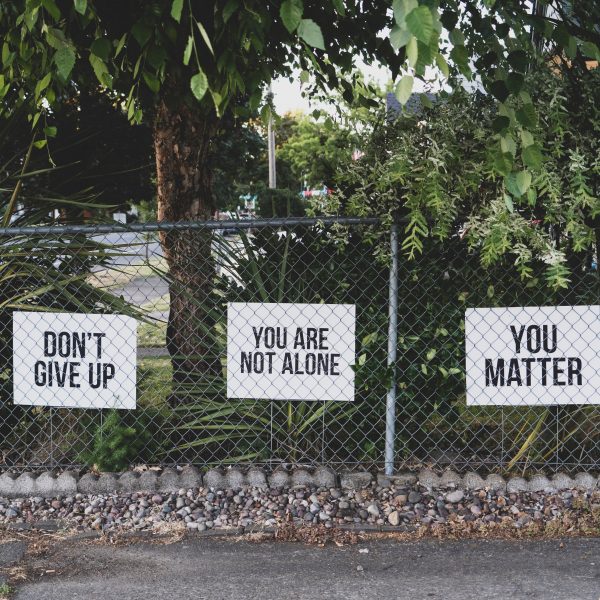There’s more to say after R U OK? – tips for managing emotional reactions

As Australian’s prepare to engage in deeper conversations about mental health on Thursday’s RU OK? Day, focusing on the 2020 theme There’s more to say after R U OK?, the R U OK team has released some hints and tips about how to manage strong reactions during an R U OK? conversation.
When facing these reactions, people may feel uncomfortable, guilty or anxious. While experiencing these reactions is normal and to be expected, by being prepared and knowing how to handle these emotions, early childhood education and care (ECEC) employees and employers can feel better equipped to support their colleagues, friends or family, minimising awkwardness and reducing the pressure.
Asking R U OK? Is only the first step, and when someone is not ok, the subsequent conversation about mental health can be difficult. While it is not expected that everyone having these conversations is a mental health professional, knowing what to say or what not to say is important.
By taking the time to listen to others, and validate their feelings, people experiencing mental illness can feel more empowered. 2020 has been a challenging year for many, particularly those in Victoria, and while COVID-19 will have an impact, for some of people, naming defined reasons for their feelings can be difficult.
Sometimes people struggle over everyday things, or feel on top of the world one day, and desperately sad the next – those feelings are perfectly normal, but if they become overwhelming, professional help should be sought.
The team at R U OK? offer the following suggestions for managing emotional conversations about mental health:
How can I prepare myself for a strong emotional reaction?
- Recognise their reaction might be in response to a range of circumstances, some of which you might not know about.
- Allow the person to fully express their emotions (i.e. let off steam) and show them you’re interested by actively listening to all they say.
- Deal with the emotions first, you can discuss the issues more rationally once emotions have been addressed.
- Being an active listener is one of the best things you can do for someone when they are distressed.
- Manage your own emotions by staying calm and not taking things personally.
How do I deal with sadness?
- Sad or tragic incidents are often difficult to deal with because we empathise with the person and feel helpless as we cannot take away their sadness or pain.
- Use lots of empathetic phrases, such as “It sounds like you’re juggling a few things at the moment” or “I understand this must be challenging for you right now”.
- Make sure you’re comfortable with any silence in the conversation.
- Know that silence gives them permission to keep talking and tell you more.
- Encourage them to access support.
- If someone begins to cry, sit quietly and allow them to cry. Lowering your eyes can minimise their discomfort. You could add, “I’m going to sit here with you and when you’re ready we can keep talking”.
- If you anticipate this response, it can help to have tissues handy.
How do I deal with anger?
- If someone is visibly hostile you can respond with: “I can see that this has upset you. Why don’t you start at the beginning and tell me what I need to know…”
- Allow them to identify all the factors they feel are contributing to their anger.
- You might encourage them by adding “Right, I understand that (….) is a problem. What else is causing you concern?”
- Be patient and prepared to listen to them talk about everything that’s adding to their frustration.
- To keep the conversation on track and to reassure them you’re interested in all they have to say, try reflecting back what they have said. You could say, “So the thing that’s really upsetting you is (….) Is that right?”
- If they feel they have been wronged or treated unfairly you are unlikely to persuade them otherwise in this conversation. It’s more constructive to listen to all they have to say and provide resources or connect them with formal channels where their specific complaints can be heard.
How do I deal with anxiety?
- Speak in short, clear sentences while still showing concern and care.
- If you anticipate an anxious response, use your preparation time to think about how you will say what you need to in a clear way.
- Stay calm. This is best displayed through deep, slow breathing, a lower tone of voice and evenly paced speech.
By using these tips, you can help someone feel supported when confronted with challenges in life whether at home, work, school or in sport.
More conversation tips are available here.
If you need support or know someone who does, visit www.ruok.org.au/findhelp for professional support services and self-care tools.
Popular

Economics
Policy
Provider
Workforce
Prime Minister Albanese backs Tasmanian Labor’s childcare plan, highlights national early learning progress
2025-06-30 10:42:02
by Fiona Alston

Economics
Provider
Quality
Practice
Policy
Workforce
South Australia announces major OSHC sector reforms aimed at boosting quality and access
2025-06-30 09:49:48
by Fiona Alston

Events News
Workforce
Marketplace
Practice
Quality
Provider
Research
An exclusive “Fireside Chat” with ECEC Champion Myra Geddes
2025-07-01 11:25:05
by Fiona Alston












